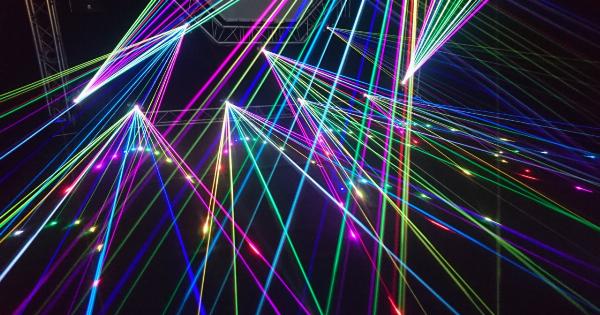Myopia, also commonly known as nearsightedness, is a refractive error that affects a significant portion of the global population. It is a condition where distant objects appear blurry, while close-up objects can be seen clearly.
This occurs due to the elongation of the eyeball or an excessively curved cornea, causing light rays to focus in front of the retina instead of directly on it.
The Impact of Myopia
While myopia may seem like a mere inconvenience, it can have profound consequences on an individual’s daily life. Those with myopia may experience difficulties in activities such as driving, sports, or even recognizing faces from a distance.
Additionally, myopia often progresses over time, leading to a higher degree of nearsightedness.
Glasses and Contact Lenses: A Temporary Solution
The most common method to correct myopia is the use of corrective lenses, such as glasses or contact lenses. These optical devices work by modifying the path of light entering the eye, allowing it to focus properly on the retina.
Although they provide instant visual improvement, they are not a permanent solution.
Glasses and contact lenses only correct the symptoms of myopia while they are being worn. Once removed, the vision returns to its blurry state.
Additionally, wearing glasses or contact lenses can be cumbersome for some individuals and may lead to dependency or discomfort.
An Alternative Solution: Laser Eye Surgery
Laser eye surgery offers a long-lasting and often permanent solution to myopia. This advanced surgical procedure reshapes the cornea to correct the refractive error, allowing light rays to focus accurately on the retina.
LASIK: The Most Popular Laser Eye Surgery
One of the most well-known laser eye surgery techniques is LASIK (Laser-Assisted in Situ Keratomileusis). During this procedure, a thin flap is created on the cornea using a microkeratome or a femtosecond laser.
The corneal tissue underneath the flap is then reshaped using an excimer laser, and the flap is carefully repositioned, acting as a natural bandage.
Advantages of LASIK
LASIK offers several advantages over other vision correction methods:.
- Quick and effective results: Most individuals experience improved vision immediately after the surgery, and it continues to enhance in the following days.
- Long-lasting outcomes: LASIK provides lasting results, with the majority of patients achieving stable vision without the need for further interventions.
- Minimal discomfort: The procedure is generally painless due to the use of anesthetic eye drops, although slight pressure or discomfort may be felt during the surgery.
- Rapid recovery: Patients usually experience a quick recovery, with many returning to their daily activities within a day or two.
- Freedom from glasses and contact lenses: LASIK reduces or eliminates the need for corrective lenses, offering individuals the freedom to enjoy activities without the hindrance of visual aids.
Selecting an Experienced Surgeon
When considering LASIK or any other laser eye surgery, it is crucial to choose an experienced surgeon to ensure the best possible outcome. Researching and consulting with multiple surgeons can help in making an informed decision.
The surgeon’s expertise, the clinic’s reputation, and the availability of advanced technology should be key factors in the selection process.
Potential Risks and Considerations
While LASIK is generally a safe procedure, it is essential to be aware of potential risks and considerations:.
- Dry eyes: Some patients may experience temporary or persistent dryness in the eyes following LASIK. This can usually be managed with artificial tears.
- Glares and halos: Some individuals may notice glares, halos, or sensitivity to bright lights, particularly during the healing period. These symptoms typically improve over time.
- Changes in vision: In rare cases, some individuals may experience under or overcorrection, resulting in a slight need for glasses or contact lenses for certain activities. Enhancements or retreatments can address these issues.
- Pre-existing conditions: Certain eye conditions, such as cataracts or severe dry eye syndrome, may affect LASIK eligibility. Consulting with an eye care professional will help determine if LASIK is a suitable option.
Is LASIK Right for You?
Laser eye surgery has transformed the lives of millions of individuals around the world, providing visual freedom and convenience. However, LASIK may not be suitable for everyone.
A comprehensive eye examination and consultation with an ophthalmologist or refractive surgeon will help determine the eligibility for LASIK based on various factors such as corneal thickness, prescription stability, and overall eye health.
Understanding the Costs
Costs associated with LASIK can vary depending on several factors, including the technology used, location, and the surgeon’s expertise.
It is important to understand the elements included in the price, such as pre and post-operative care, and any potential enhancements or retreatments.
Conclusion
LASIK and other laser eye surgeries have revolutionized the field of vision correction, offering individuals a potentially permanent solution to myopia.
While glasses and contact lenses provide temporary relief, laser eye surgery can provide long-term visual freedom and convenience. By choosing an experienced surgeon and understanding the potential risks, one can achieve improved vision and enhance their quality of life.




























